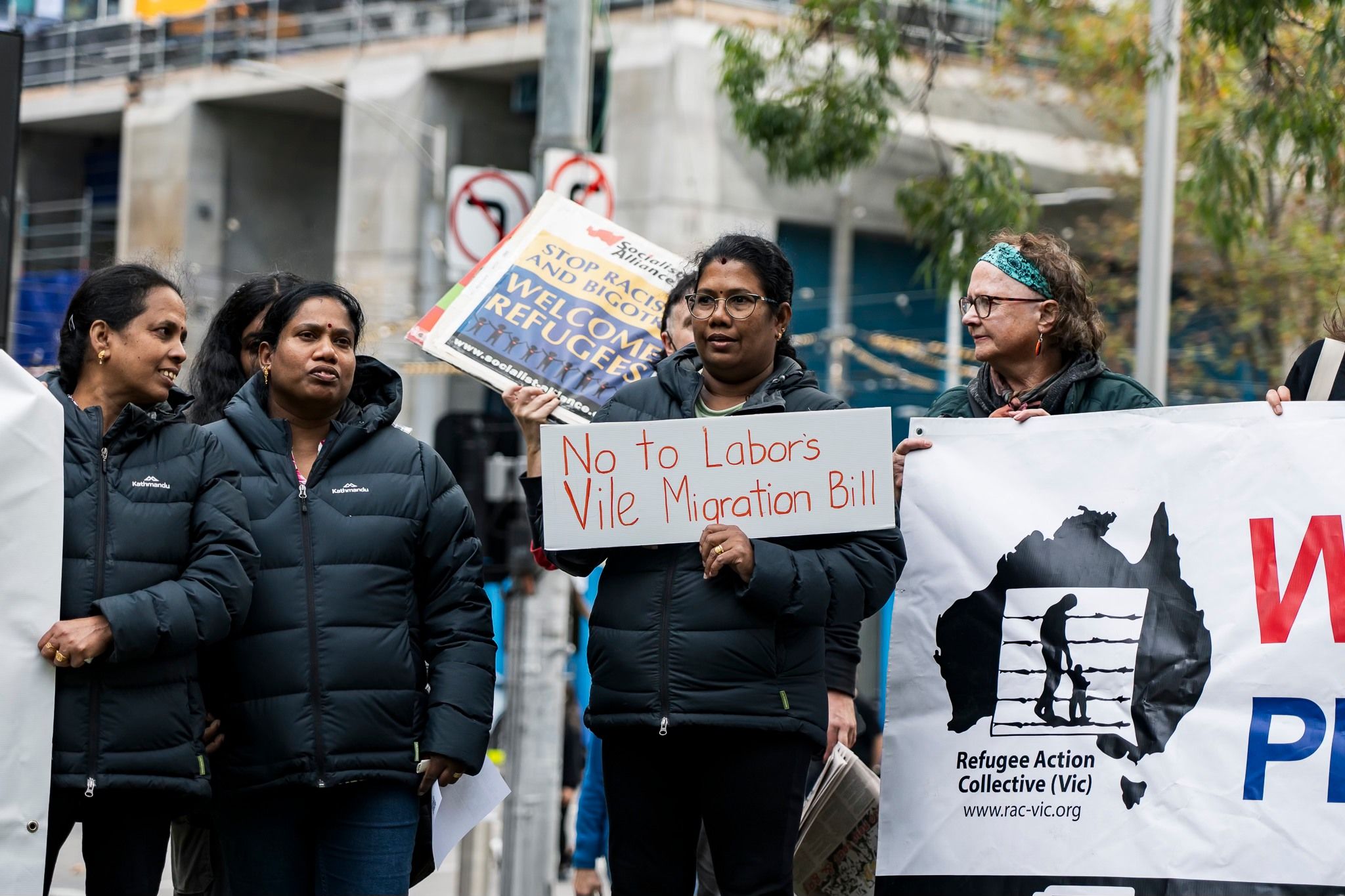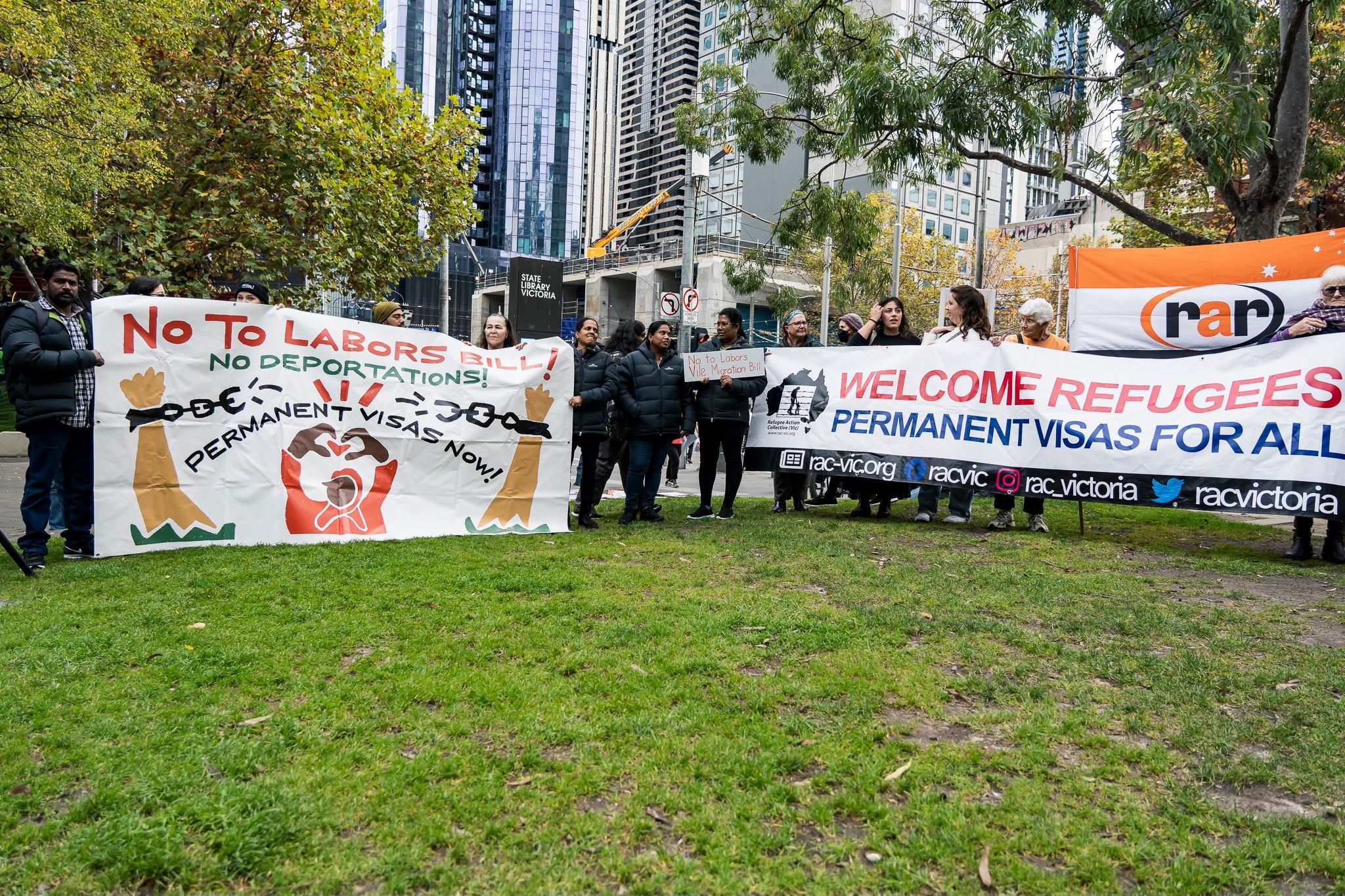The federal government’s push for tougher deportation laws is facing renewed criticism in the wake of a recent ruling by the High Court.
The ruling, delivered last Friday, authorises the indefinite detention of non-citizens who resist deportation, stirring fresh opposition from political adversaries and community organisations.
In March, the Government introduced a Bill granting the Minister for Immigration expanded powers to compel cooperation with deportations from Australia. The Bill empowers the Minister to bar entry to people from specific countries.
This move raises concerns of a potential broad travel ban affecting countries like Zimbabwe, South Sudan, Iran, Iraq, and Russia, which have resisted accepting involuntary returns.

Immigration Minister Andrew Giles recently called on Opposition Leader Peter Dutton to support the controversial Bill, which could be discussed again in the Senate as early as this week.
“Mr Dutton has had so many positions on this Bill, I think everyone’s lost count of them,” Giles said at a recent press conference.
“It’s time for him to come with the government and do the right thing to help us manage our migration system and keep the community safer.”
But not everyone agrees. Greens Senator David Shoebridge criticised the ruling, saying Labor’s proposed laws are too harsh. He compared them to the policies of former US President Donald Trump and urged Labor to reconsider.
In 2017, Trump signed an executive order that barred people from six Muslim-majority nations from entering the USA, effectively shutting out refugees. Despite facing temporary injunctions on several occasions, the US Supreme Court ultimately lifted a block on the controversial ban in 2020.

“These laws are grossly unnecessary they were unnecessary from day one. But now with this High Court decision, there is no legitimate basis apart from cruelty,” Senator Shoebridge said.
“Under this ruling, there will be a class of people who have a genuine and real fear about being persecuted if they’re returned to a country … but who have been refused by a system that everybody acknowledges is unfair.
“If they’ve been refused by that system for their asylum claim, the High Court has said there is a chance that they could be held indefinitely in detention.”
The High Court’s decision came after a case involving an Iranian detainee known as ASF17, who fears persecution if sent back to Iran because of his sexuality and religion. It’s estimated that around 170 detainees could remain in detention because of Friday’s ruling.
Protests against Labor’s deportation Bill were held in Melbourne, Sydney and Brisbane on Saturday amid concerns the proposed legislation, which could be voted on this week, is inhumane.
“This puts tens of thousands of people living in the community at risk of deportation, including children who have lived here almost all their lives. Children born here could be separated from their parents,” said David Glanz, a spokesperson for the Refugee Action Collective (RAC).

“Victims of this legislation could include the Medevac refugees — people brought here from detention on Manus Island in PNG and from Nauru.
“It also threatens victims of the Coalition’s flawed fast track process, which was set up to reject most claims for asylum. Labor’s program commits to reviewing fast track — instead the government is threatening to deport victims of the process.”
A Change.org petition calling for the Bill to be scrapped has amassed nearly 1,000 signatures.
Zimbabwean-born CALD community activist Tich Chingombe, who created the petition, criticised the proposed legislation as politically motivated.
“We’ve got courts and other pathways, why aren’t we using them?” Chingombe told BACKCOVERNEWS.COM in an exclusive sit-down interview.
“This looks more political than anything… There’s about 40,000 Zimbabweans [in Australia] and most of them have done the right thing but the problem is we have to look at the situation and see that there are people who are not going to do the right thing and we have to find out why and put in measures to support them to do the right thing.”
A department of Home Affairs spokesperson told BACKCOVERNEWS.COM all reasonable and appropriate efforts are made to engage countries to cooperate and facilitate the lawful removal of their nationals.
“It would be premature to name individual countries as countries of removal concern, prior to passage of this Bill,” the spokesperson said.
“Australia makes every effort to cooperate with countries in the context of the return to their home country of their nationals who have exhausted all avenues to remain in Australia.
“In practice, the removal concern country designation would be considered following significant government to government engagement on the issues and challenges of returns. The Bill includes a number of exemptions for family and humanitarian visa applicants for Australia, as well as Ministerial exceptions.
“The Bill provides flexibility for the responsible Minister to take into account the specific situation of the country concerned and to provide a tailored response where required.”

